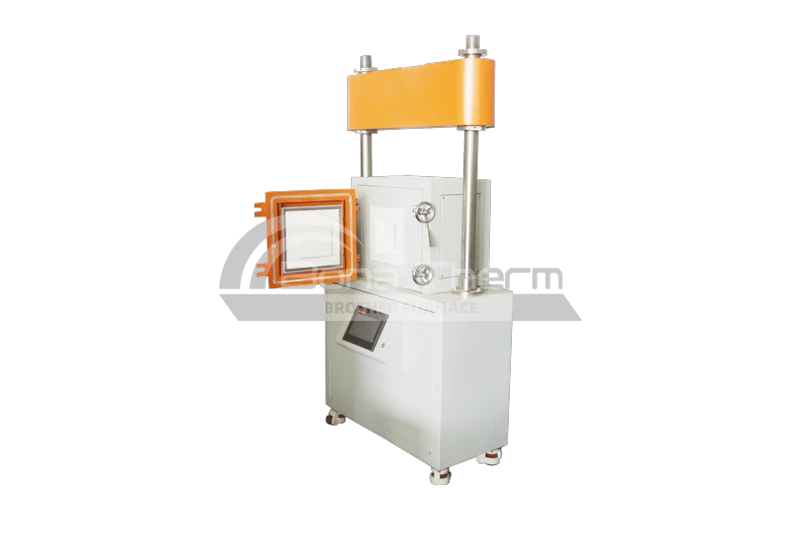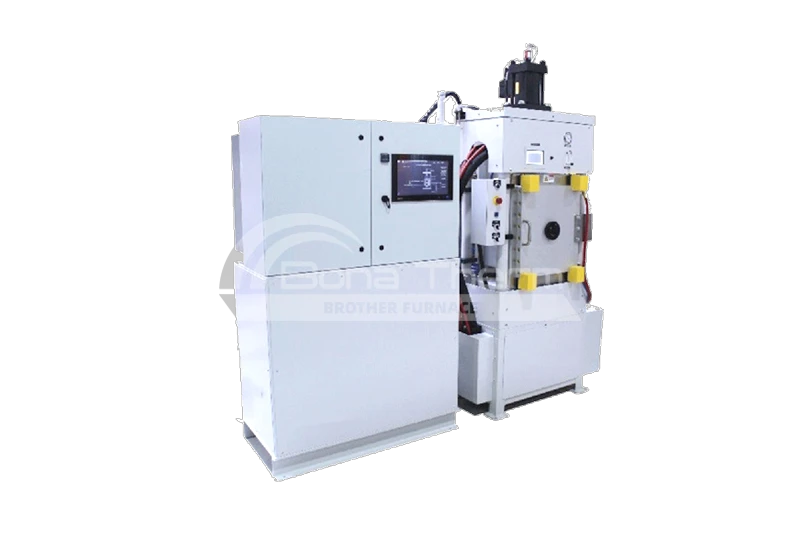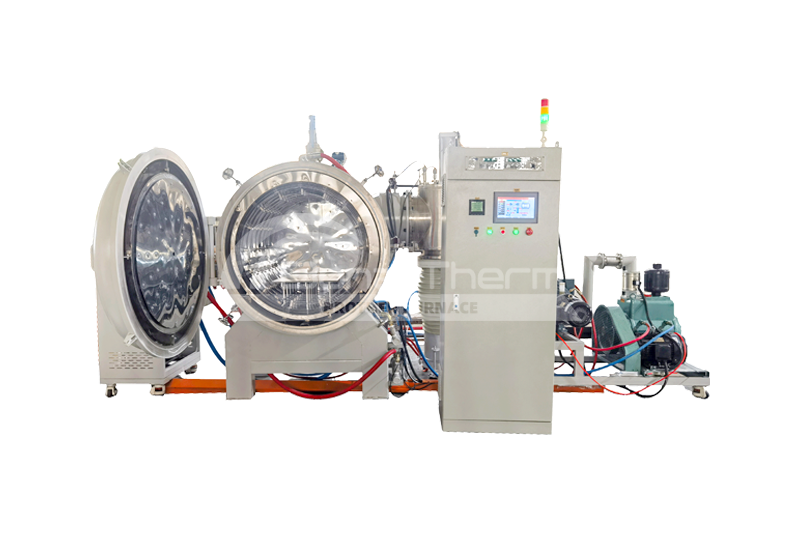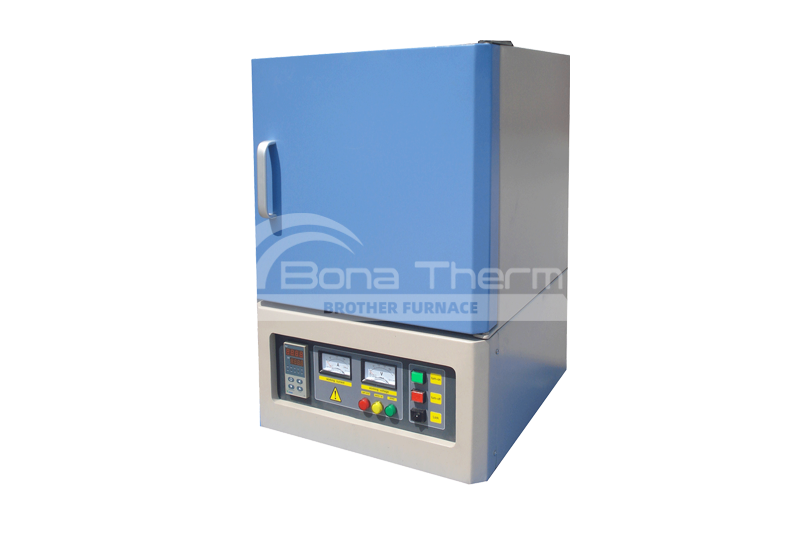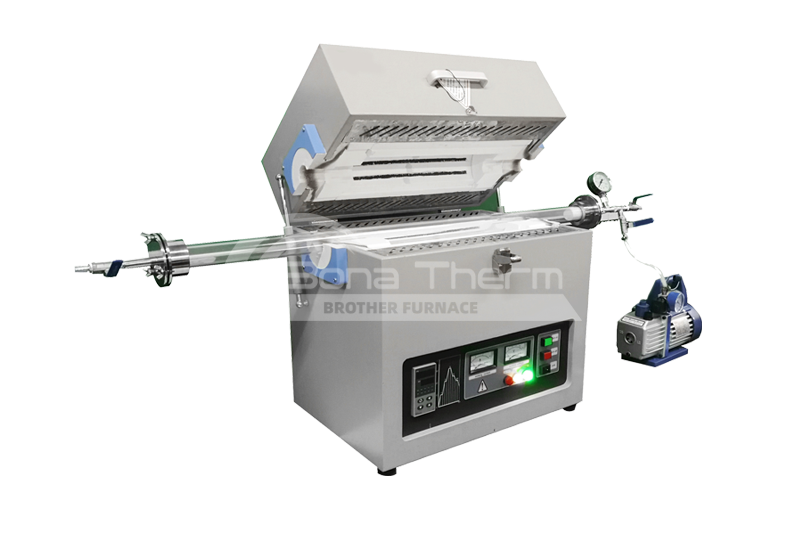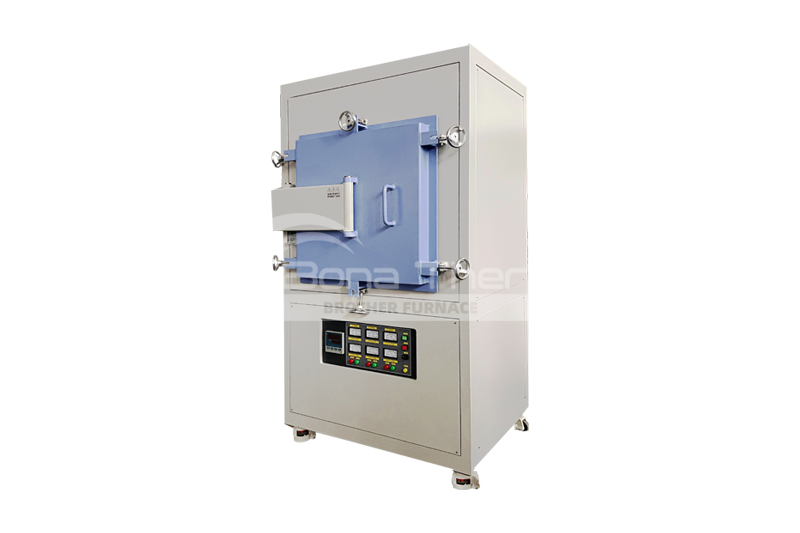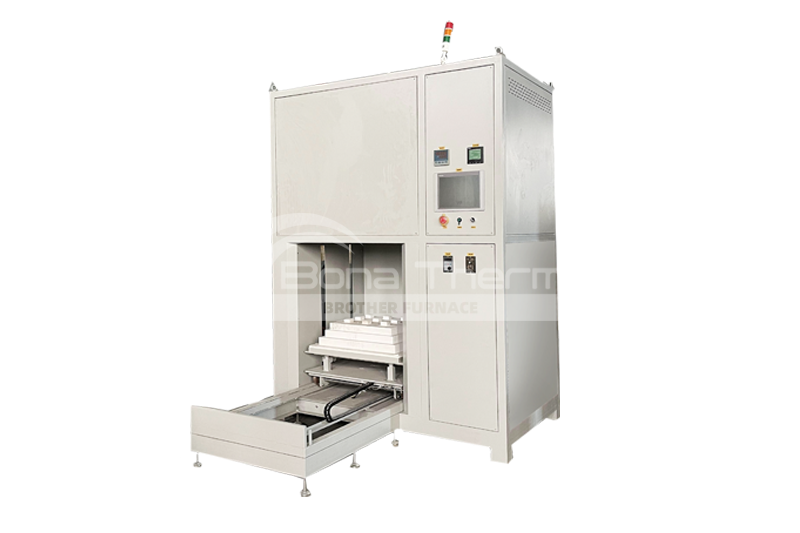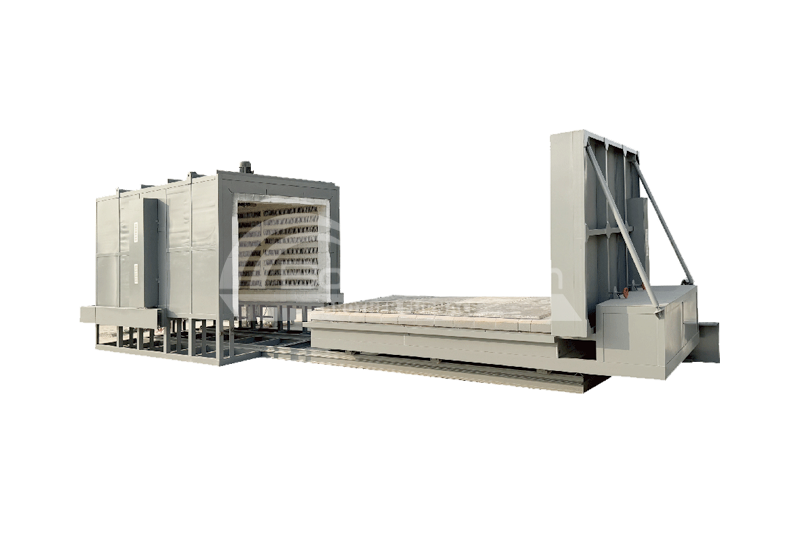Introduction
Vacuum gas press sintering furnace, also called high temperature and high-pressure sintering furnace, is a kind of experimental equipment commonly used in the fields of sintering ceramics, powder metallurgy, and other fields. It is specially designed for high-temperature and high-pressure sintering of special materials at an gas pressure of no more than 9.8Mpa. It is widely used in the special materials industry to treat EC ceramics (such as silicon carbide, zirconia, aluminum oxide, silicon nitride, etc.) and metal materials (such as cemented carbide) under high-pressure protective atmosphere conditions. It is suitable for universities, colleges, and scientific research. Units, industrial, and mining enterprises conduct testing and mass production, which is beneficial to increase the sintering density of materials and improve the mechanical properties of materials. Silicon nitride and ultra-high temperature alloy materials sintered in pressure furnaces can be used to make corrosion-resistant and high-temperature-resistant mechanical parts.
Composition and structure
The vacuum gas press sintering furnace mainly consists of the following parts:
● Vacuum system:
Including vacuum pumps, vacuum valves, vacuum gauges, etc., used to create a low pressure environment.
● Heating system:
Including heating elements, temperature controllers, etc., used to provide a high temperature environment.
● Hot pressing system:
Including pressure source, pressure controller, etc., used to provide a high-pressure environment.
● Furnace body:
Including furnace shell, furnace lining, etc., used to provide high temperature and high pressure sintering environment.
● Control System:
Including temperature controller, pressure controller, etc., used to control sintering process parameters
Features
- The double-layer SUS304 furnace body structure is connected with cooling water in the middle, which effectively reduces the surface temperature of the furnace body, reduces high-temperature damage, and reduces the impact on the environment.
- The insulation materials in the furnace can be carbon felt, graphite, molybdenum sheets, and stainless steel. They have low thermal conductivity and a good insulation effect. They can effectively isolate heat even at very high temperatures and save energy consumption.
- It has a wide temperature range and a variety of heating elements to choose from. The heating element uses graphite rods/plates, molybdenum ribbons/molybdenum wires, and the inner layer is a pressure vessel. In a suitable protective atmosphere, the temperature can reach 2000°C, which can be adapted to the air pressure sintering of different materials.
- Diversified vacuum system configuration, select different levels of vacuum (mechanical pump or diffusion pump unit) according to the process.
- It consists of automatic detection, manual control of pressure and pressure reduction, and safety devices such as overpressure and audible and visual alarms. The electric furnace is equipped with a furnace pressure limiter and an automatic exhaust safety valve. When the furnace pressure exceeds a certain pressure value, the safety device valve automatically exhausts, making the furnace pressure control more stable.
- Humanized configuration allows manual operation or one-click intelligent operation.
- One furnace has multiple uses and can be used as a simple vacuum or atmosphere sintering furnace.
Technical Parameters
Model parameters | rated power | Work area dimensions (diameter x height) | Rated temperature | Temperature control area | work pressure | Discharging method |
|---|---|---|---|---|---|---|
BR-120/150 | KW | Φ120×150 | 2000℃ | a district | 9.8MPa | superior |
BR-200/250 | KW | Φ200X250 | 2000℃ | a district | 9.8MPa | up and down |
BR-300/500 | KW | Φ300X500 | 2000℃ | Second District | 9.8MPa | up and down |
BR-400/600 | KW | Φ400X600 | 2000℃ | Second District | 9.8MPa | Down |

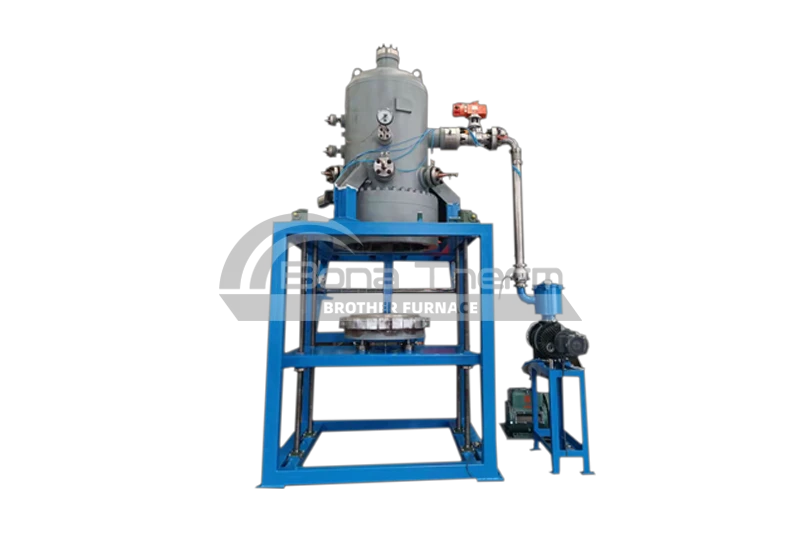
 Get Inquiry
Get Inquiry Send Email
Send Email